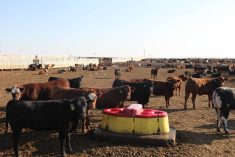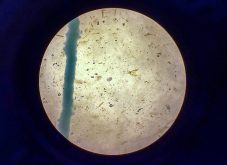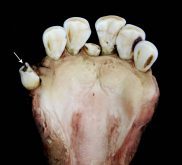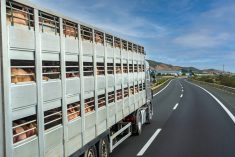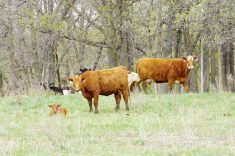A major donation to support animal welfare research at the University of Guelph will be devoted to further education for veterinarians and producers.
Dairy giant Saputo donated at total of $1 million to the Universities of Guelph and Wisconsin to develop more courses for those working with cows.
Guelph plans to create an intensive rotation for veterinary students who will work directly with dairy animals starting in the fall of 2016. Further education will also be offered to practicing veterinarians and farmers later this year.
“One of the things we want to do with that rotation with the funding from Saputo is to help bring in students from other veterinary schools,” said Derek Haley of the University of Guelph and part of the faculty working at the Campbell Centre for dairy research. Guelph wants to be a centre for dairy cattle welfare studies.
Read Also
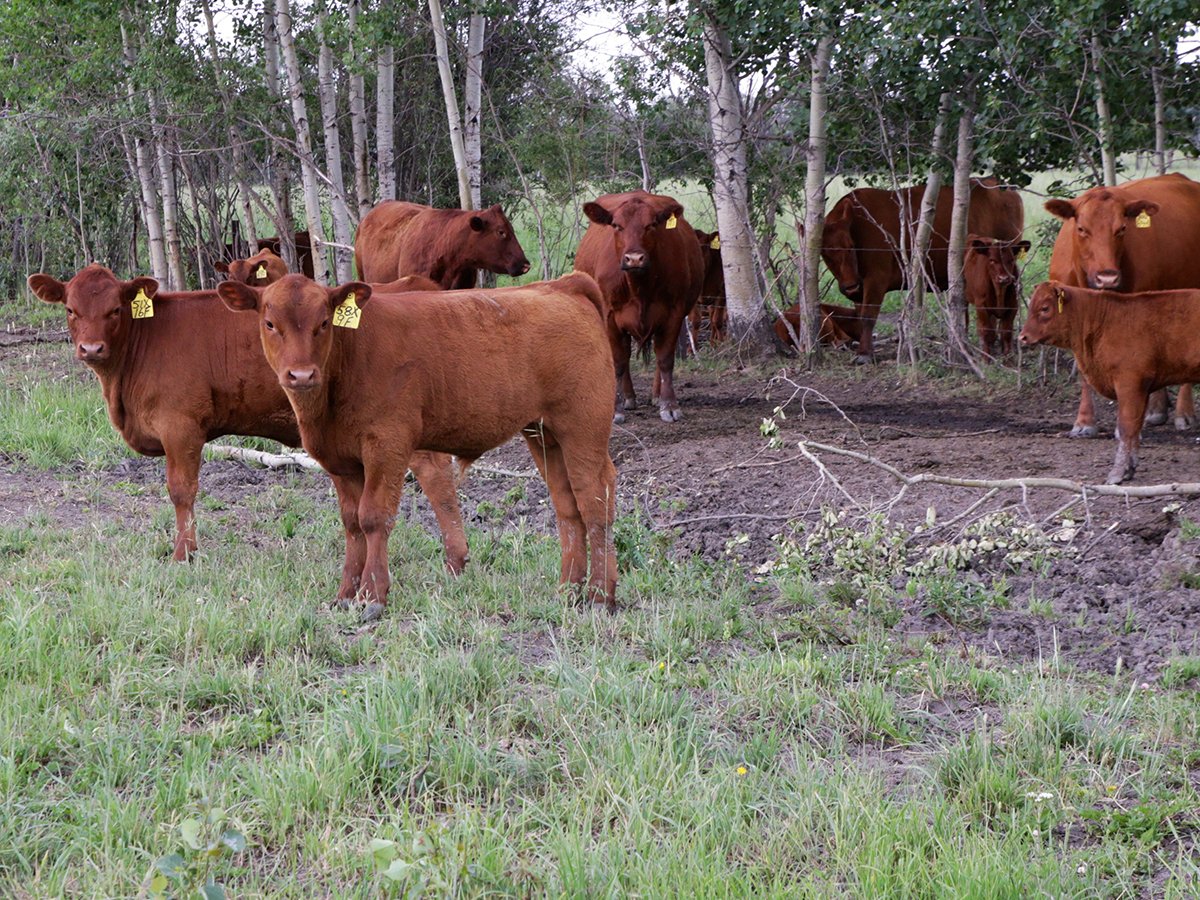
Feeder market continues the climb
For the week ending Aug. 30, Western Canadian feeder cattle markets traded $4-8 per hundredweight higher on average.
“We do teach them about animal welfare in the early part of the program but this rotation we want to offer in dairy cattle welfare will be a new addition to that,” he said.
There is increasing public interest in humane animal practices and that has farmers and processors looking at dehorning practices, lameness, calf care, culling of cows and cow comfort.
“Focusing on the well being of the animals is still something we haven’t put our best efforts into, I don’t think,” said Haley.
He works out of the 25-year-old Campbell Centre at the university where more than 50 associated faculty are teaching and researching animal welfare. The philosophy is good care is an important part of the sustainability of animal agriculture.
On the West Coast, the University of British Columbia handles applied research, often with guidance from dairy producers.
“The vast majority of stuff that we do is directed at the top 25 percent, the early adopters that go to conferences and are actively seeking information,” said Dan Weary of UBC.
There is a confusing landscape for producers right now where more corporations are dictating higher standards from suppliers.
“The industry’s intentions are that everyone wants to work toward a common goal but it is going to take time to get these initiatives working together so we achieve this common goal of having standards that we believe in and that we have some assurance that they are being followed on farm,” Weary said.
“The reality is for the next few years, until we get our act together, there will be some duplication and it will take a while to iron some things out,” he said.
UBC works directly on commercial farms and gives producers specific data about their own operations, as well as provides comparisons against other operations.
Common problems like lameness can be charted and management changes may be suggested.




